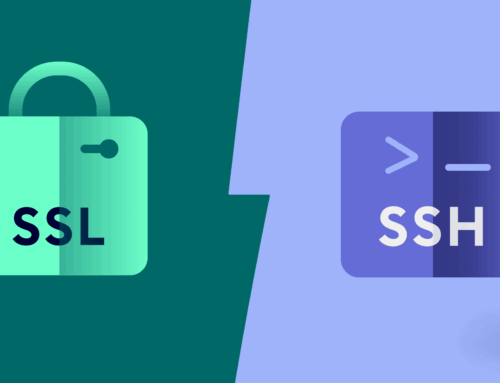
Cybersecurity for Startups: Small Businesses & Budget Solutions Friendly Strategies
In today’s digital age, cybersecurity is paramount, especially for startups and small businesses. These organizations often face unique challenges in protecting their sensitive information and maintaining a robust security posture. This article provides an overview of cybersecurity for startups, common cyber threats, and effective cybersecurity budget solutions tailored to their specific business operations.
Understanding Cybersecurity for Startups
The Importance of Cybersecurity in Today’s Landscape
In today’s interconnected cybersecurity landscape, the importance of cybersecurity for startups cannot be overstated. Startups are particularly vulnerable to cyber threats due to their often limited resources and nascent security infrastructure. A data breach can be catastrophic, leading to financial losses, reputational damage, and even business closure. Implementing effective cybersecurity practices is crucial for startups to protect their business, build trust with customers, and ensure long-term sustainability. According to Teamwin Global Technologica, prioritizing cybersecurity is not just about preventing attacks; it’s about fostering a culture of security awareness and resilience within the organization.
Common Cybersecurity Threats Facing Startups
Startups face a myriad of cybersecurity threats that can compromise their data security. Phishing attacks, malware infections, and ransomware are common methods used by cybercriminals to exploit vulnerabilities in a startup’s security posture. Weak passwords, unpatched software, and a lack of employee cybersecurity training can further exacerbate these risks. A successful cyber attack can result in a data breach, exposing sensitive data such as customer information, financial records, and intellectual property, highlighting the need for a robust cybersecurity strategy. Understanding these common cybersecurity threats is the first step in developing effective cybersecurity strategies To protect your business operations, implementing a solid security strategy is essential.
Cybersecurity for Small Businesses: Unique Challenges
Small businesses encounter unique cybersecurity challenges due to their limited budgets and IT resources, often requiring them to implement basic security measures. Unlike larger enterprises, startups often operate with a tight budget, making it difficult to invest in comprehensive cybersecurity tools and services. Moreover, small businesses may lack dedicated IT staff with the expertise to implement and manage robust security measures. This can lead to vulnerabilities in their cybersecurity framework, making them easy targets for cybercriminals. Addressing these challenges requires a strategic approach to budget allocation and a focus on cost-effective security measures that align with the business needs of the startup.
Developing a Cybersecurity Budget
Key Considerations for Budget Allocation
When developing a cybersecurity budget for startups, several key considerations come into play. A startup must assess its critical assets and the potential impact of a security breach on its business needs. This involves identifying sensitive data, intellectual property, and other valuable information that requires protection. A thorough risk assessment helps determine the most likely cyber threats and vulnerabilities that the startup faces. Based on this assessment, the cybersecurity budget should prioritize the most critical cybersecurity measures to mitigate security vulnerabilities and these risks. Another key consideration is compliance with relevant regulations and industry standards, which may require specific security controls and investments. Allocating budget for employee cybersecurity training and security awareness programs is essential to reduce the risk of human error and social engineering attacks, fostering a security posture and making your employees part of your defense strategy.
Cost-Effective Cybersecurity Solutions for Startups
Startups often operate with a tight budget, making it crucial to identify cost-effective cybersecurity solutions that provide maximum value. Cloud security solutions can be a cost-effective alternative to on-premises infrastructure, offering scalable security features and reducing the need for significant upfront investment. Open-source security tools can also provide robust security capabilities at a lower cost compared to proprietary software.
Consider leveraging free security tools and resources offered by cybersecurity vendors and government agencies. Implementing multi-factor authentication, using password managers, and regularly backing up data are relatively low-cost cybersecurity practices that can significantly improve a startup’s security posture. Remember, a proactive and risk-based approach to cybersecurity budget allocation can help startups protect their business without breaking the bank.
Affordable Cybersecurity Tools and Resources
Many affordable cybersecurity tools and resources are available to help startups enhance their security posture without exceeding their cybersecurity budget. Endpoint detection and response (EDR) solutions, intrusion detection systems (IDS), and security information and event management (SIEM) tools can provide valuable insights into potential cyber threats and security incidents.
Regularly scanning for vulnerabilities and penetration testing can help identify weaknesses in a startup’s cybersecurity framework before they can be exploited by cybercriminals. Consider partnering with managed security service providers (MSSPs) to augment your security team and gain access to specialized expertise without the cost of hiring full-time security staff. Prioritizing these tools and resources helps build effective cybersecurity for startups, ensures data security and reduces the risk of a data breach. By implementing these cost-effective cybersecurity strategies, your business can safeguard sensitive information and maintain a robust security posture.
Effective Cybersecurity Strategies
Implementing Best Practices for Security Measures
Implementing best practices for security measures is crucial for startups aiming to establish a robust security posture.
This involves adopting a multi-layered approach that addresses various security vulnerabilities and cybersecurity threats. Utilizing firewalls to protect network perimeters, implementing robust endpoint security to safeguard devices, and employing privileged access management (PAM) to control access to sensitive data are essential cybersecurity measures. Regular cybersecurity training for employees enhances security awareness and reduces the risk of human error, a common factor in security incidents. Adopting these cybersecurity strategies helps startups fortify their defenses against potential cyber attacks and maintain data security. Regularly reviewing and updating these security measures ensures that they remain effective in the face of evolving cyber threats. For comprehensive cybersecurity, the mentioned Teamwin Global Technologica offers services with built-in security features to meet the security needs of every startup, no matter the size.
Utilizing the Best Cybersecurity Tools for Startups
Selecting and utilizing the best cybersecurity tools is vital for startups to effectively protect their business.
Firewalls are a cornerstone of network security, preventing unauthorized access to your systems. Robust endpoint security solutions, such as those offered by SentinelOne and Crowdstrike, protect individual devices from malware and other cyber threats. Privileged access management (PAM) tools help control and monitor access to sensitive data, reducing the risk of insider threats and data breaches. Additionally, enterprise CCTV and biometric systems can enhance physical security. Regularly updating and maintaining these cybersecurity tools ensures that they remain effective against the latest cybersecurity threats. Utilizing these cybersecurity tools, startups can significantly improve their security posture and minimize their vulnerability to cyber attacks and increase data security.
Managed Security Services: When to Consider Them
Managed security services (MSSPs) can be a game-changer for startups, especially those with limited IT resources.
When a startup lacks dedicated cybersecurity staff or expertise, partnering with an MSSP can provide access to specialized security skills and cutting-edge security tools, enhancing their overall security. MSSPs offer a range of services, including threat detection, incident response, and security monitoring. They can also help startups comply with relevant regulations and industry standards. While outsourcing security may seem like an added cost, it can often be more cost-effective than hiring and training an in-house security team. Consider managed security services when your startup needs comprehensive cybersecurity but lacks the internal resources to manage it effectively. These services ensure your business receives robust security, allowing you to focus on core business needs while ensuring data security. Outsourcing this helps startups handle cybersecurity challenges, helps create an effective cybersecurity strategy, and strengthen your security posture.
Cybersecurity Tips for Startups
Educating Employees on Cybersecurity Best Practices
Educating employees on cybersecurity best practices is a fundamental component of establishing a robust security posture for startups. A well-informed workforce acts as a first line of defense against cyber threats. Cybersecurity training programs should cover topics such as phishing awareness, password hygiene, and safe browsing habits. Regular security awareness training sessions, including simulations of cyber attacks, can significantly reduce security vulnerabilities and the risk of security incidents. Implementing a culture of security awareness ensures that employees understand their role in protecting sensitive data and are vigilant against potential threats. Teamwin Global Technologica prioritize educating their clients to help them choose the right solutions and protect their business.
Regular Security Audits and Assessments
Regular security audits and assessments are vital for startups to identify vulnerabilities and maintain a strong security posture. These audits involve a comprehensive review of your cybersecurity framework, including network security, data security, and application security. Penetration testing can help identify weaknesses in your systems before they can be exploited by cybercriminals. A security assessment should evaluate your compliance with relevant regulations and industry standards. The findings from these audits should be used to develop a remediation plan and improve your cybersecurity strategies. Expert Network Security Assessment provides a thorough evaluation of a client’s network security posture, identifies pain points, and recommends appropriate solutions.
Preparing for Potential Breaches and Cyber Attacks
Preparing for potential breaches and cyber attacks is essential for startups to minimize the impact of a security incident. Developing an incident response plan is crucial, outlining the steps to take in the event of a data breach or cyber attack. This response plan should include procedures for containing the breach, notifying affected parties, and restoring systems. Regularly testing your incident response plan through simulations ensures that your team is prepared to act quickly and effectively, enhancing your overall security. Implementing data backup and recovery solutions helps minimize data loss and ensures business continuity. Proactive Threat Management services are focused on continuously monitoring for cyber threats and implementing rapid responses to prevent and mitigate attacks.
The Future of Cybersecurity for Startups in 2025
Emerging Cybersecurity Trends and Technologies
The future of cybersecurity for startups in 2025 will be shaped by emerging cybersecurity trends and technologies. Artificial intelligence (AI) and machine learning will play an increasingly important role in threat detection and incident response. Cloud security solutions will continue to evolve, offering enhanced security features and scalability. Zero trust security models, which assume that no user or device is trusted by default, will become more prevalent. Blockchain technology may be used to enhance data security and integrity. TeamWin is a technology company specializing in robust cybersecurity and threat detection. TeamWin offers real-time Dark Web monitoring.
Adapting to the Evolving Cybersecurity Landscape
Adapting to the evolving cybersecurity landscape is crucial for startups to stay ahead of cyber threats. Cybercriminals are constantly developing new and sophisticated attack methods. Startups need to continuously monitor the threat landscape and update their cybersecurity strategies accordingly. Investing in cybersecurity training for employees ensures that they are aware of the latest threats and best practices. Collaborating with other organizations and sharing threat intelligence can help startups improve their security posture and develop a more effective security strategy. Regularly assessing and updating your cybersecurity framework ensures that it remains effective in the face of evolving cyber threats. TeamWin’s teams are continuously trained on the latest IT and ITES technologies. Teamwin Global Technologica prides itself on having highly trained and motivated teams that stay updated on the latest technologies.
Building Resilience Against Cyber Threats
Building resilience against cyber threats is essential for startups to ensure business continuity in the event of a security incident, which is a key component of their security strategy.. This involves implementing robust security measures to prevent cyber attacks, as well as having a comprehensive incident response plan in place to minimize the impact of a breach. Regularly backing up data and testing recovery procedures helps ensure that you can quickly restore systems and data. Investing in cybersecurity insurance can provide financial protection in the event of a data breach. Fostering a culture of security awareness among employees helps reduce the risk of human error and insider threats. TeamWin offers proactive threat management.
5 Surprising Facts About Cybersecurity for Startups: Budget-Friendly Strategies
- Many startups underestimate the importance of cybersecurity, with 60% of small businesses closing within six months of a cyber attack.
- Implementing basic cybersecurity measures, such as firewalls and antivirus software, can reduce the risk of an attack by up to 85% without significant costs.
- Free resources, like cybersecurity training and awareness programs, are often available from local government and nonprofit organizations, helping startups save money while educating their teams.
- Data breaches can cost a startup an average of $200,000, making it crucial to invest in budget-friendly solutions rather than facing potential financial ruin.
- Utilizing open-source security tools can provide effective protection at little to no cost, allowing startups to maintain a robust security posture without breaking the bank.
What are the essential cybersecurity strategies for startups?
Essential cybersecurity strategies for startups include implementing strong passwords, using multi-factor authentication, and regularly updating software. Startups should also prioritize employee training on cybersecurity awareness and establish a clear incident response plan to deal with potential breaches. By focusing on these areas, startups can build a robust cybersecurity posture without incurring significant costs.
How can small businesses manage cybersecurity on a tight budget?
Small businesses can manage cybersecurity effectively by leveraging budget-friendly cybersecurity tips such as utilizing open-source security tools, adopting cloud security solutions, and implementing basic security measures. Additionally, prioritizing investments in training employees about security practices can enhance the overall security of the business while keeping costs low.
What are the best practices for maintaining strong network security?
Maintaining strong network security involves several best practices, including regularly updating firewalls, implementing intrusion detection systems, and conducting routine security audits. Startups should also segment their networks to limit exposure in case of a breach and ensure that sensitive data is encrypted to protect against cyber threats.
What cybersecurity tools are most effective for startups?
The most effective cybersecurity tools for startups include antivirus software, firewalls, and intrusion detection systems. Additionally, managed security services can provide startups with the expertise needed to protect against sophisticated cyber threats. Utilizing cloud security solutions can also offer cost-effective protection for startups.
Why is incident response planning crucial for startups?
Incident response planning is crucial for startups as it prepares them to respond quickly and effectively to a security incident or breach. A well-defined incident response plan helps minimize damage, ensures compliance with regulations, and protects sensitive information. This proactive approach is essential for maintaining trust with customers and stakeholders.
How can startups enhance their cybersecurity awareness culture?
Startups can enhance their cybersecurity awareness culture by providing ongoing training and resources for employees. Encouraging open discussions about security risks and regularly updating the team on emerging cyber threats can foster a culture of security. Implementing security awareness programs and simulations of security incidents can also reinforce the importance of vigilance.
What are the common cybersecurity threats facing startups today?
Common cybersecurity threats facing startups include phishing attacks, ransomware, and data breaches. As cybercriminals become more sophisticated, startups must remain vigilant and implement comprehensive cybersecurity measures to protect their sensitive data. Understanding these threats is the first step in developing an effective cybersecurity strategy.
How should startups allocate their cybersecurity budget?
Startups should allocate their cybersecurity budget by assessing their specific business needs and vulnerabilities. This involves prioritizing investments in essential security measures, training, and tools that provide the best return on investment. Regularly reviewing and adjusting the budget based on evolving cyber threats is also critical for maintaining a strong security posture.
What role do cloud security solutions play for startups?
Cloud security solutions play a vital role for startups by providing scalable and cost-effective options for protecting data and applications. These solutions often come with built-in security features, such as encryption and access controls, which can help mitigate risks associated with data breaches and cyber attacks. Utilizing cloud security can help startups focus on growth while ensuring their cybersecurity needs are met.






